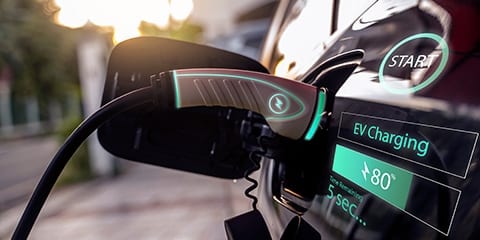One of the contested issues about electric vehicles is how long the battery will last. This concern can often dissuade drivers from considering the purchase of a new or used EV. This article aims to help you understand how an EV battery can degrade and how, as EV owners, we can extend the life of a battery.
First, let’s examine manufacturer warranties. For instance, the warranty on the battery of a Tesla Model S or Model X is for eight years or one hundred fifty thousand kilometers, whichever occurs first. Over the course of the warranty, Tesla promises a minimum of 70% retention of capacity.
The smaller Tesla Model 3 comes with the same eight-year, seventy percent guarantee; however, the maximum mileage allowed is 100,000 miles for basic models and 120,000 miles for Performance and Long Range models. While the Nissan Leaf’s warranty varies from 5 years/60,000 miles to 8 years/100,000 miles, dependent upon the model, the batteries in the Peugeot e-208 and Vauxhall Corsa-e are protected for 8 years or 100,000 miles.
These warranties serve as a useful starting point for estimating battery life, suggesting it should last most drivers about ten years if an EV battery manufacturer is willing to guarantee it for 100,000 miles.
How do the batteries deteriorate?
The rate at which the battery of an electric automobile depletes depends on several factors. To begin with, battery life will be reduced by the simple act of recharging and discharging, albeit slowly and insignificantly.
Larger losses in battery capacity may result from a few additional circumstances. These are:
- Overuse of rapid chargers
- Operating in high temperatures
- Recharging a flat battery
- Overcharging the battery
- High discharge (i.e. quick acceleration and high speeds)
Try to keep your car’s battery between 50% and 80% charged, and if possible, recharge it overnight to extend its lifespan.
Tips on preserving battery life
The health of EV batteries was analyzed by the American website Electrek using data from fleet cars. The research’s conclusions can be summed up as follows:
- Energy storage decreases by 2.3% a year on average
- The majority of electric car batteries will last longer than the vehicle itself
- The first few years saw greatest losses, after which the rate of deterioration decreases
- Rapid charger use accelerates the deterioration process
- Batteries that are liquid-cooled operate better. The Tesla Model S, for instance, experiences a 2.3% annual reduction due to liquid cooling, but the older Nissan Leaf with air cooling decreases by 4.2% annually
- There is no correlation between increased vehicle use and greater battery depreciation
In reality, unless you’re purchasing an older, used electric car, the battery life shouldn’t be a top priority. When driven responsibly and charged with consideration, a battery should be able to outlast you and the car’s subsequent owners well into six-figure mileage and possibly beyond. To put it differently, an EV may outlive a comparable petrol or diesel vehicle.



